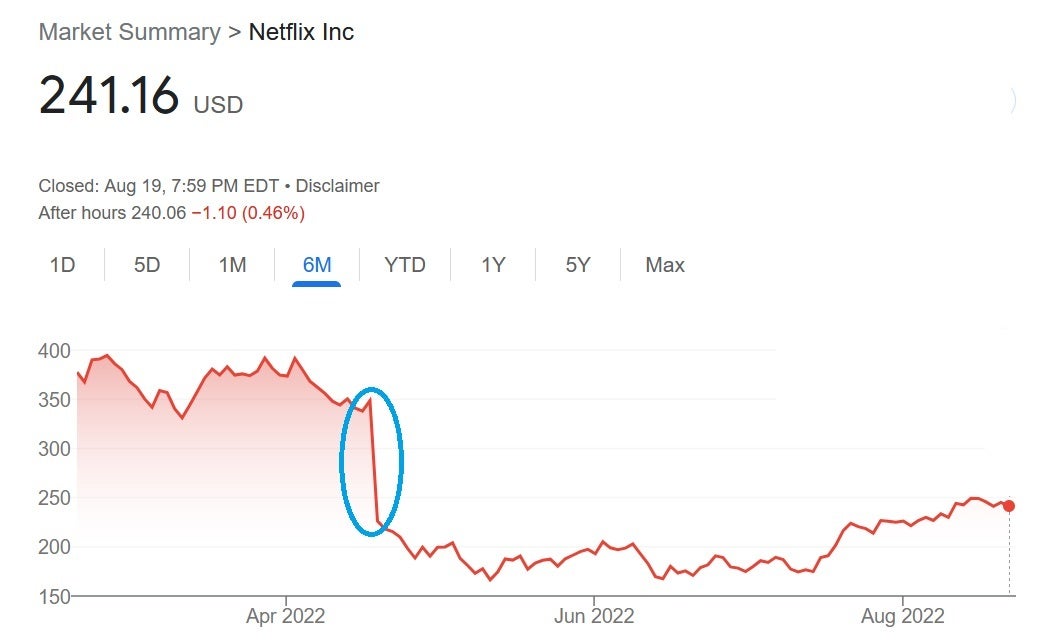Netflix’s lower-priced ad-supported tier may skip commercials with certain content
Netflix may not show ads on its original programming for adults and children
It isn’t clear how long a new original movie will show without ads, but Netflix could be doing this so that filmmakers don’t get worried about ads interfering with the enjoyment of their films. In addition, some of Netflix’s original programming for children also will run without ads even on the ad-supported tier, something Disney+ also plans to do on its ad-supported tier. Bloomberg points out that even if studios prevent Netflix to run ads during certain movies or shows, Netflix can get around this by showing ads before and after it shows a movie, something that movie theaters often do.

Netflix has yet to recover from the 25% hit it took when Q1 earnings were released
Bloomberg also said that some of the content licenses that Netflix has may not allow it to show any ads at all even before or after certain titles. The report suggests that the video streamer might have to pay 10% to 15% over and above the current value of the deals it has with studios in order to get the rights to show ads on some content. Netflix is reportedly negotiating with Sony Group Corp., Paramount Global and Warner Bros. Discovery Inc.
During the company’s first-quarter earnings, it reported a decline in subscribers for the first time in over 10 years. Netflix blamed the decline in subscribers, which amounted to 200,000 users, on a variety of reasons including password sharing, increased competition, inflation, and the Russian invasion of Ukraine. Netflix shares declined 25% the day after the earnings were released and the stock has yet to fully recover the amount it lost after Netflix reported Q1 earnings.
Netflix could take in $3 billion to $4 billion in advertising revenue by implementing this plan
It was the drop in subscribers that had Netflix executives coming up with the plan to create an ad-supported tier of service in the first place. That, and the news that Disney’s streaming services including Disney+, Hulu, and ESPN+, now have more viewers than Netflix. Disney has 221 million streaming customers counting all of its platforms compared to Netflix’s 220.7 million total.
Analysts estimate that Netflix could garner as much as $3 billion to $4 billion a year with an ad-supported online tier, making it instantly one of the biggest players in online video advertisements. Perhaps it is too obvious to say, but we should point out anyway that the the ad-supported tier will have a lower subscription price than the current service.
Netflix has been raising its price and its basic service, which supports 1 screen, is priced at $9.99 per month. The standard service, which allows the service to be viewed on two screens simultaneously, is priced at $15.49. The Premium service is $19.99 per month and this allows the service to be used on four screens with Ultra HD resolution available.
For all the latest Technology News Click Here
For the latest news and updates, follow us on Google News.

